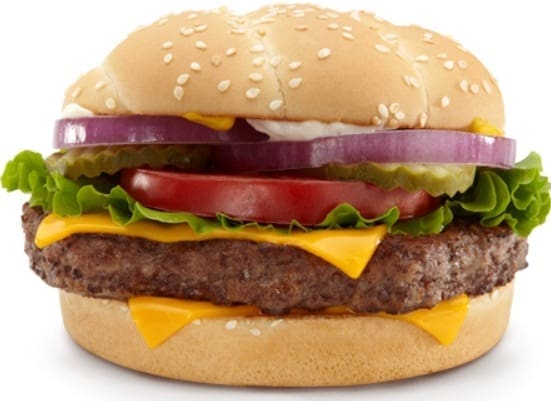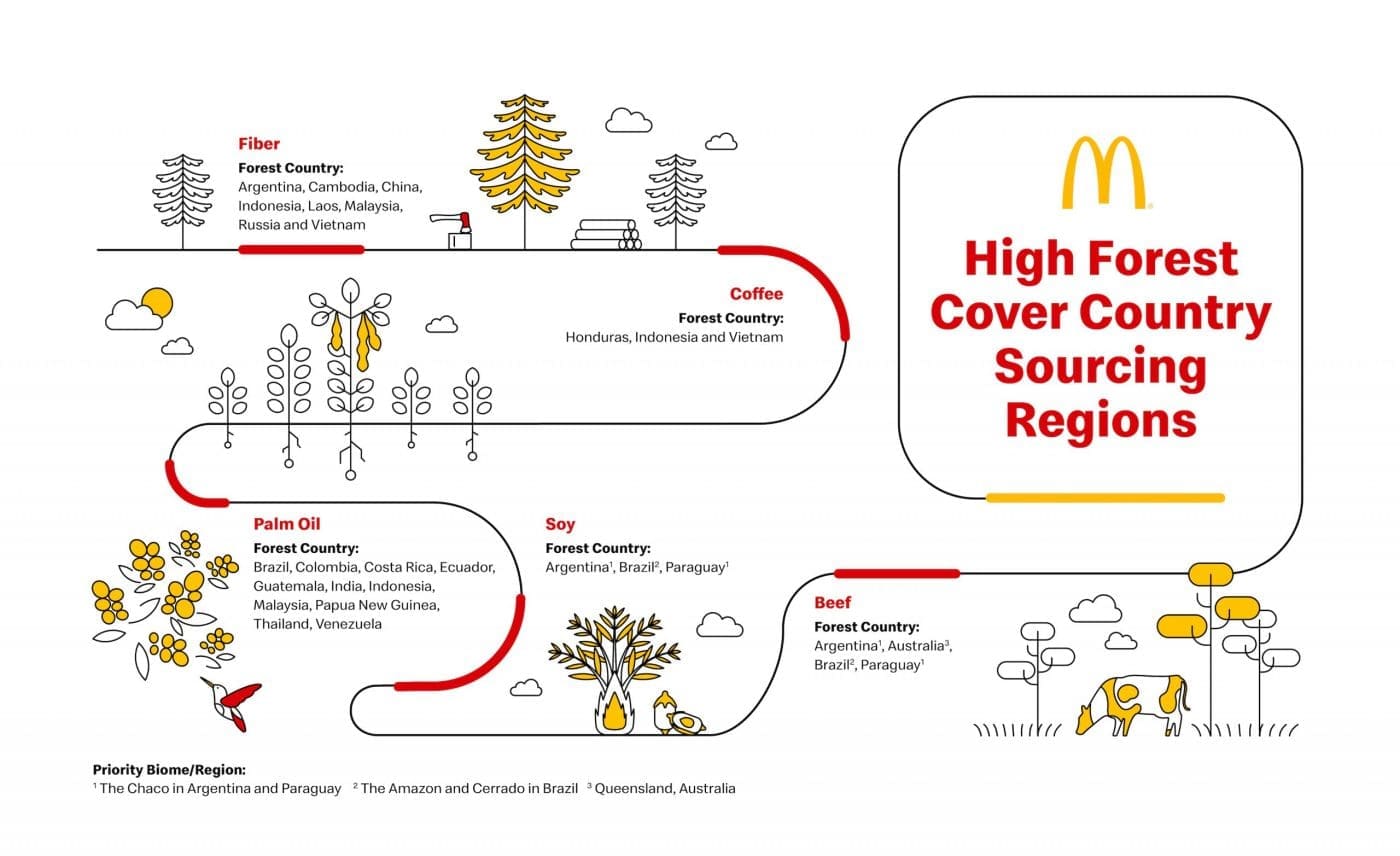A previous version of this article stated that McDonald’s had achieved its deforestation for Australian beef. Since then, McDonald’s has changed its wording to say “the majority of Australian beef”.
GLOBAL burger giant McDonald’s says the majority of beef sourced for its restaurants is not linked to deforestation after it set a goal to eliminate deforestation from its supply chains by 2020.
The company, which is Australia’s largest single beef customer, set the target in 2017 highlighting fibre, coffee, palm oil, soy and beef as the main commodities at risk of being linked to deforestation. It specifically mentioned the Queensland industry at the time.
According to its website, McDonald’s says 97.7pc of these priority commodities supported deforestation-free supply chains in 2021 and the company was now hoping to eliminate deforestation by the end of the decade.
“McDonald’s has committed to eliminating deforestation from our global supply chains by the end of 2030. This commitment applies to all commodities and every region we source from, including Central Qld,” a McDonald’s spokesperson said.
“Since the end of 2021, the majority of beef sourced for McDonald’s restaurants supported deforestation-free supply chains, meeting the requirements of our Deforestation-Free Beef Procurement Policy and Commitment on Forests.
“McDonald’s continues to comply with the definitions and guidelines developed by the Australian Beef Sustainability Framework, in relation to deforestation and land management.”
McDonald’s originally planned to legislate the target at a postcode level, where it would stop sourcing beef from an entire postcode if one supplier did not comply.
Naturally, many were concerned about the legislation unfairly punishing producers who were complying – McDonald’s has since changed its policy and is using the ABSF to inform its target.
The company’s global meat procurement team made a trip to Central Qld last year to discuss the local farming practices and management techniques.
“The trip allowed the team to understand how beef production works in Australia and the positive outcomes resulting from effective tree, grass and grazing management,” the spokesperson said.
Need for more region-specific approach
ABSF chair Mark Davie said he was not surprised to hear McDonalds had reached its goal – especially in Qld.
“If I was an international buyer of meat trying to comply with one of these targets, I think Qld would be one of the best places to operate,” Mr Davie said.
“It has satellite images taken every week and a framework that is backed by decades of woodland science.”
With many companies and countries setting deforestation targets, the definition of forest has been a source of debate. ABSF defines a forest as woody vegetation with more than 20pc canopy cover reaching two metres high with a minimum area of 0.2ha.
Mr Davie said the definition of forest was being taken of context and he would prefer to see regulations and goals based on bioregions.
“Those definitions are not for the purpose of categorising land-types. If you look at Qld, it could be more like five metres in places, whereas the Northern Territory and South Australia has that lower canopy,” he said.
“All of these definitions should go back to a bioregion, look what the original ecosystem was and what is the best balance between productivity and the environment. I know that is a hard conversation for a multi-national to have because they to tick a box for a consumer.
“For consumers, they just care that the environment is being looked after, they don’t sign up to a definition of canopy cover.”
- Beef Central will have more on the McDonald’s visit and the approach of a group of Central Qld producers trying to work through legislation.



